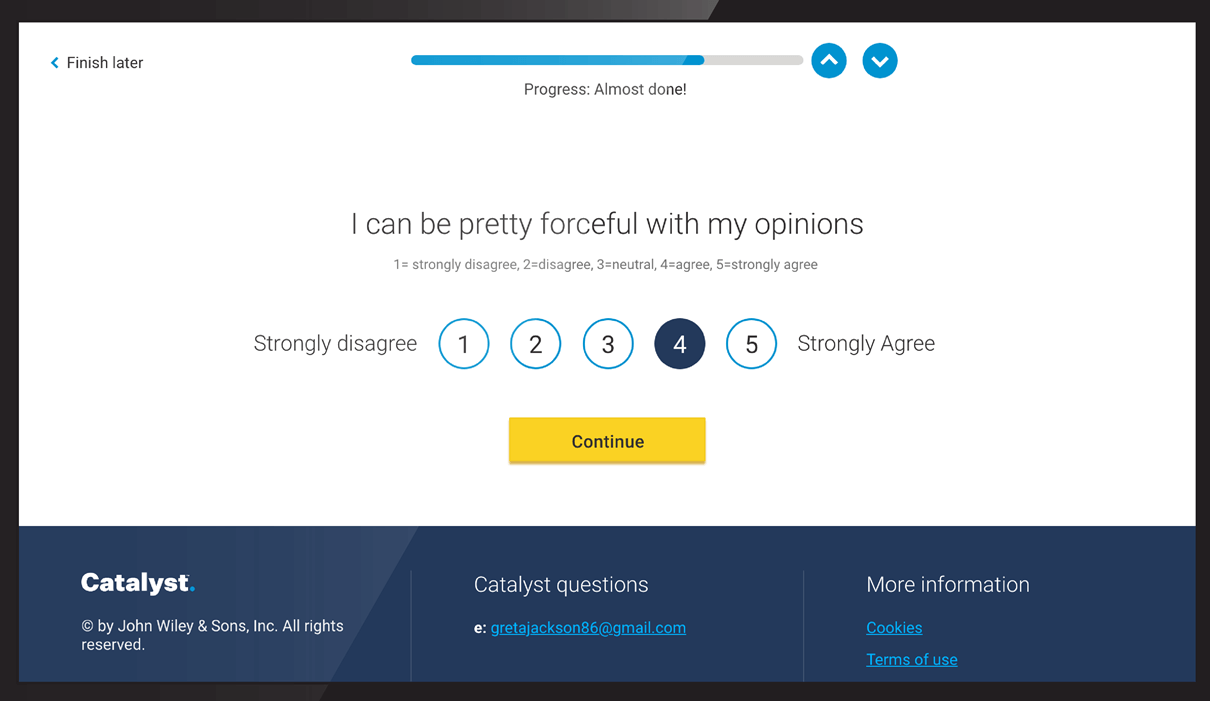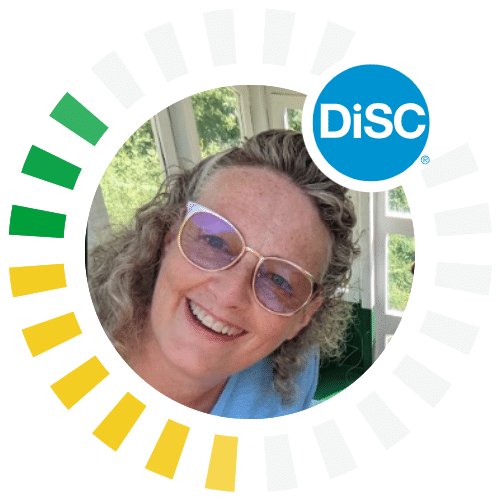Which DISC is DiSC®?
Key Takeaways
- Because the DISC® model itself is not copyrighted, many people have created assessments based on the model.
- It's important to choose an assessment backed by research and purchase it from a company with a robust privacy policy and customer support.
Have you seen DISC or DiSC profiles for sale that all seem a bit different from each other? The difference goes beyond the lowercase i.
It’s important to know which assessment based on the DISC model is actually under discussion. Someone selling a DISC assessment can claim that millions of people use DiSC/DISC every year. That's true, but it refers to the research-based Everything DiSC® assessments published by Wiley.
Wiley uses the lowercase i in DiSC to differentiate their products from others based on the DISC model.

The flavors of DISC
The DISC model is not protected by copyright. William Moulton Marston, a PhD psychologist from Harvard, first proposed the DISC Model of Behavior. He did not create an assessment tool himself, but others have used his model to create their own. Several academics and companies have used his work to create psychological inventories they call DISC or some variant of that name.
Depending on the author of the assessment, DISC can be an acronym for:
- Dominance or Drive
- Influence or Inspire
- Steadiness, Stability, or Submission
- Conscientiousness, Correctness, Compliance, or Caution
Various colors, numbers, or images might be used to differentiate each personality type.
How to choose among the various DISC assessments
The questionnaire or survey instrument
Questions should be easily and accurately answered
Here’s an example of a test item from a free DISC test:
For each group of four descriptions you should have one most like you and only one least like you.
○ My behavior is well disciplined
○ People see me as being generous
○ I am always on the move
○ I persevere until I get what I want
You can see how this would be hard to answer. Many DISC tests use this type of forced-choice or ipsative questionnaire (where the sum of all respondents' scores adds up to a constant).
Other questionnaires will use a Likert scale where you rank each item on a five-point scale, from “never” to “always” describes me. Or the scale will show choices of “strongly disagree” to “strongly agree” with the statement. This type of question gets more useful answers.
There is no time limit for completing the Everything DiSC® questionnaire, making it possible for people requiring more time to complete the assessment without needing any special adaption or modification. The required reading level is reasonable:
- Flesch Reading Ease score: 74.2
- Flesch-Kincaid Grade Level: 4.7
There should be enough survey items to obtain accurate results.
A 70-item questionnaire is more reliable than a 20-item questionnaire. An adaptive testing tool—one that tailors questions based on past answers—is used by Everything DiSC profiles, making the survey even more accurate. Wiley has found that it is 32% more accurate than the DiSC Classic forced-choice test.
The questions should avoid social bias.
Look at the questionnaire items to see if they are asking respondents to choose answers that are more socially desirable such as “friendly” or to reject socially undesirable attributes such as “aggressive.” This is how several DISC tests end up with more S styles. The S-style items on their questionnaire are simply more socially desirable so more people choose them.

The report or profile
You can’t do much with a report that gives you only a page or two about your results. The real power of DiSC is in both what it teaches you about yourself and what it teaches you about interacting with others who have styles unlike your own.
Reports should be easily read, memorable, and accurate. They should take care with language, presenting all personalities in a balanced manner. Reports full of charts and graphs can be interesting, but they also need to be memorable and easy to interpret.
If you hear people criticize DISC profiles for lacking reliability or validity, they are almost always referring to issues around the presentation of an adaptive style. After multiple attempts, researchers at Inscape Publishing (now a part of Wiley) were not able to validate the adaptive style graphs; therefore, they were abandoned.
When evaluating a profile, we recommend reading the full descriptions for the four styles with an eye toward the language being used. Would a C reading about her style feel like it was harsh and judgmental, or accurate and affirming? Would an S reading about his style feel like he was reading about a pushover or would it feel supportive and clear?
Also ask if the profile provides the type of information needed to address issues you or your learners find important. Does the report provide enough information that you’re able to find insights and take action based on its contents? Does the value of the profile match the cost of the product?
We offer sample reports for each of the Everything DiSC profiles.
The research behind the profile
Research validation for any valid personality assessment should be publicly available. Look for data that shows both the reliability and validity of the assessment.
Wiley, the publisher of all Everything DiSC assessments, is committed to maintaining the highest standards of instrument development and application through a careful research and development process. They ensure all the instruments offer valid scores and accurate feedback to the respondent. Each instrument is designed to provide reasonably accurate interpretations or feedback based on your scores. There’s an entire book detailing the research behind Everything DiSC: Everything DiSC® Manual. The following research reports provide more easily digested information on the reliability and validity of the DiSC assessments:
About Everything DiSC: Theory and Research (PDF)
Explanation of the DiSC model and the research behind it.
Everything DiSC Research Report for Adaptive Testing Assessment (PDF)
This report provides the research behind the Everything DiSC assessments.
Use of your data
Many sources for free versions of a DISC-based assessment will require and retain your email address. It’s reasonable to assume that when you purchase a product like a personality profile, some data will be collected in order to process your payment and to maintain a vendor/customer relationship. However, the adage “if you’re not paying for the product, you are the product” often holds true. Check privacy policies. Here’s Wiley’s.
Facilitation and other support
Look for training and facilitation support provided. This will give you some perspective on how much the publisher has invested in their own assessment. Can you facilitate training around the profiles yourself? Are there trained facilitators available? Do you want to obtain a professional certification?
If you still have questions about an assessment, can you easily locate contact information for the vendor or publisher?
Look for Everything DiSC when shopping for the most reliable, memorable, and well-researched DiSC profiles. Wiley is the world’s leading provider of DiSC-based learning solutions.
Everything DiSC is a good choice for you if:
- You want an assessment that provides value to the person who takes it and for your organization.
- You want a profile that gives accurate results, is memorable, and challenges the people who take it to adapt their behavior based on what they’ve learned.
- You want a tool to improve communication, leadership, salesmanship, and teamwork.
We (Discprofile.com) are diamond award-winning Authorized Partner of Wiley’s Everything DiSC® and The Five Behaviors® brands. Explore our catalog >
Posted 09/18/2012







